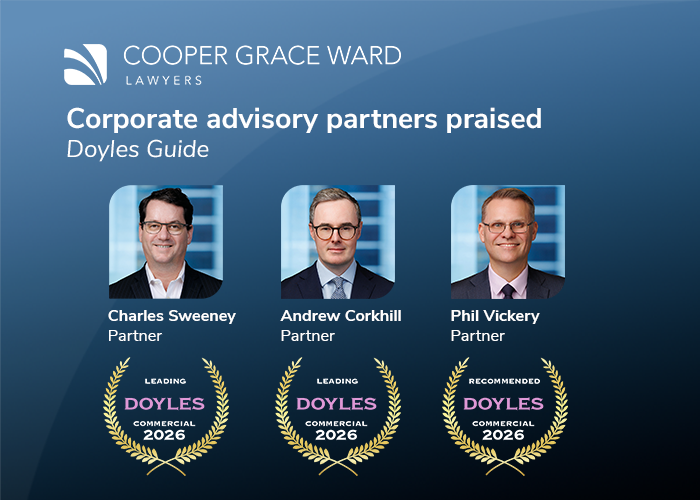The Fair Work Ombudsman continues to personally pursue directors and HR advisers under the accessorial liability provisions in the Fair Work Act 2009 (Cth) (FWA).
To recap, as outlined in our April 2016 Risk Management Adviser, section 550 of the FWA provides that a third party (including an individual) can be subject to penalties if ‘involved in’ a contravention of the FWA. Being ‘involved in’ a contravention means:
- aiding, abetting, counselling or procuring the contravention;
- inducing the contravention, whether by threats or promises or otherwise;
- being, by act or omission, directly or indirectly, knowingly concerned in or party to the contravention; or
- conspiring with others to effect the contravention.
The decision of Fair Work Ombudsman v Step Ahead Security Services Pty Ltd [2016] FCCA 1482, is a further indication of the Fair Work Ombudsman’s willingness to pursue individuals who are knowingly concerned in contraventions of the FWA.
In this case, the Federal Circuit Court held a director personally liable to pay compensation as well as imposing significant penalties for his deliberate involvement in underpayment of employees’ award entitlements.
Mr Jennings was the sole director of Step Ahead Security Services Pty Ltd, which employed eight casual security guards.
Step Ahead Security Services paid its employees a flat hourly rate for all hours worked and failed to pay employees overtime or weekend and public holiday penalty rates prescribed under the Security Services Industry Award 2010. As a result, the employees suffered a cumulative wage deficit of $22,779.79 over a three month period.
Mr Jennings had also been a sole director of previous security companies that had been investigated by the Fair Work Ombudsman for complaints associated with underpayments of wages and that were subsequently placed into liquidation.
Despite Mr Jennings’ familiarity with the Award minimum entitlements and irrespective of numerous warnings and contravention letters issued to him and to Step Ahead Security Services by the Fair Work Ombudsman, Mr Jennings failed to remedy any of the underpayments to casual security guards.
The Fair Work Ombudsman commenced proceedings against Step Ahead Security Services and Mr Jennings for nine breaches of the Award in contravention of section 45 of the FWA, which provides that a person must not contravene a term of a modern award.
The Fair Work Ombudsman relied on section 550 of the FWA to establish Mr Jennings’ personal liability for Step Ahead Security Services’ contraventions, on the basis that Mr Jennings was the ‘controlling mind’ of Step Ahead Security Services.
Ultimately, Step Ahead Security Services and Mr Jennings admitted to the contraventions and were held jointly and severally liable to pay compensation to the employees, being the outstanding wage entitlements, along with penalties of $257,000 for Step Ahead Security Services and $51,400 for Mr Jennings.
The Federal Circuit Court also exercised its discretion under section 545(1) of the FWA to make Mr Jennings, as an accessory, jointly and severally liable for the compensation awarded to the casual security guards as there was evidence that Step Ahead Security Services was in the process of being wound up.
To provide further deterrence against future underpayments, the Federal Circuit Court ordered that 25% of Mr Jennings’ penalty be suspended and made payable if he contravened the FWA again within a 5 year period.
The penalties ordered against Step Ahead Security Services and Mr Jennings are some of the largest amounts imposed by the Fair Work Ombudsman in Queensland for contraventions of the FWA. The Federal Circuit Court was willing to impose these penalties because Mr Jennings and Step Ahead Security Services demonstrated calculated and deliberate conduct amounting to a blatant disregard of Australian workplace laws and employee entitlements.
This decision demonstrates the Court’s willingness to make individuals prosecuted under section 550 of the FWA personally liable to pay compensation in cases of underpayment of wages.
Directors and HR advisers need to be aware of the importance of employers complying with the FWA.
By Belinda Winter, Partner and Sandra Barry, Associate
This article originally appeared in the July issue of our Workplace Relations and Safety Risk Management Adviser.



